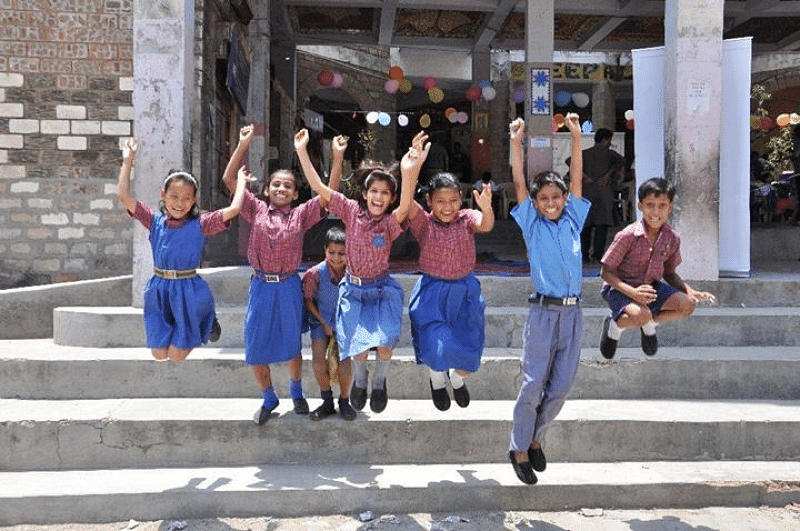Economy
Save Our Schools from the RTE

The government must open its eyes to private players in education sector and evolve meaningful regulations which enable good schools to continue functioning.
As the Government of India kicks off the consultative process for the New Education Policy, several recommendations have come in from popular education columnists and policy advisers. They vary from restricting private investments in education to bringing in more accountability for government teachers. In higher education, there have been voices demanding further deregulation of the sector or seeking a complete overhaul of the regulatory mechanism. But there is one issue which has been completely left out – the state of low-cost private schools in India.
Thanks to the failure of the state to provide quality education to children and the aspirations of the poor, several low-cost private schools have mushroomed in India. These schools are typically situated in poor neighbourhoods and teach children for a very small fee. The poor find them affordable, and with the quality of education in many of these schools better than the nearest government school, parents prefer to send their children to these schools.
Some of these schools are run by social entrepreneurs who have developed a smart business model to keep the school going by charging a small fee and seeking donations from various charities and individuals. Thousands of such schools have come up over the years. India Institute’s study of low cost private schools in Patna, Bihar is hard proof of the positive impact of these schools on our education system.
There was one problem which most of these schools were facing – they were not being ‘recognized’ by the respective state governments. The archaic rules and regulations governing the recognition process are so restrictive that they can only be satisfied by schools with huge initial capital. That left these low-cost private schools with two options, either bribe the officers of education department to get a recognition certificate, or continue running the schools without recognition. Parents were satisfied, the children were learning and they were happy to provide a service which was in short-supply. That was till the Right to Education Act kicked in.
The Right to Education Act made it illegal to operate ‘unrecognized’ schools. This has lead to the shutting down of several such schools. According to estimates by India Institute, nearly 3000 unrecognized schools have been shut down by the government since RTE was enacted. Further, at least 14,000 have been given notice to shut down. Several of these schools are low-cost quality private schools. How many exactly? Nobody knows, and the government is making no effort to find out. It is left to the civil society to fight for these schools.
As we speak, India Institute is running a campaign to save one such school in New Delhi. Deepalaya School, Sanjay Colony, which has been educating poor children in the slum for more than 20 years now, is being forced to shut down. The Delhi School Education Act requires that recognized schools run on land owned by the management, but they operate on land belonging to the Delhi Slum Board. Since RTE has criminalized the operation of unrecognised schools, the school has been shut down, and now just operates a tuition center for poor kids as requested by their parents. Students from higher classes have either dropped out, or are forced to study in a government school which is in a pathetic condition.
A short video we have produced shows the plight of the schools and what the community in Sanjay Colony stands to lose due to the government’s action. The #SaveDeepalaya campaign is online and we are requesting everybody to sign the petition here.
The fight for the rights of the poor children and their right to get quality education is not an easy one. But a journey of a thousand miles begins with one step, and #SaveDeepalaya campaign is the first step towards securing the future of our education system. We need an education policy that enables the poor, not create more problems for them. And for this, the governments must open its eyes to private players in education sector and evolve meaningful regulations which enable good schools to continue functioning.
A short video about Deepalaya has been included below.
https://www.youtube.com/watch?v=sXKcqMwKRYM
Introducing ElectionsHQ + 50 Ground Reports Project
The 2024 elections might seem easy to guess, but there are some important questions that shouldn't be missed.
Do freebies still sway voters? Do people prioritise infrastructure when voting? How will Punjab vote?
The answers to these questions provide great insights into where we, as a country, are headed in the years to come.
Swarajya is starting a project with an aim to do 50 solid ground stories and a smart commentary service on WhatsApp, a one-of-a-kind. We'd love your support during this election season.
Click below to contribute.
Latest